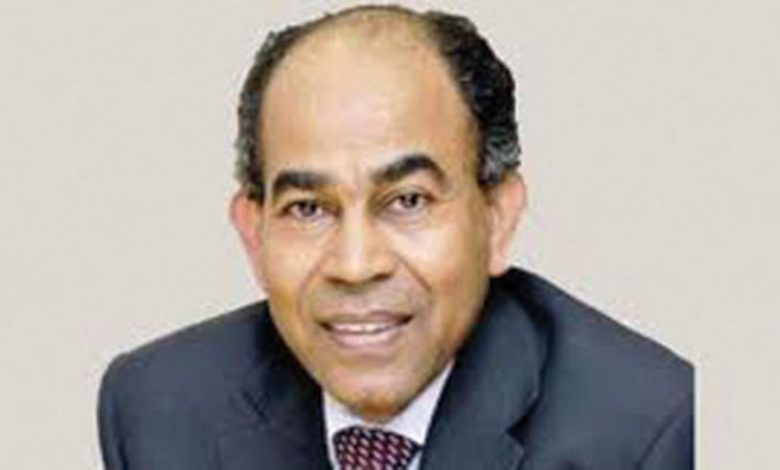Al-Burhan-Hemedti Meeting Postponement, What is then?

By: Osman Mirghani
Asharq Al-Awsat Newspaper
The year 2023, which was disastrous for Sudan by all standards, ends amid widespread confusion about two matters. The first is calls for mobilization and popular armed resistance, calls that clearly increased after the Rapid Support Forces (RSF) entered the state of Gezira, with its capital being the city of Medani. The second relates to what was announced about a meeting between Lieutenant General Abdul Fattah Al-Burhan, President of the Sovereign Council and Commander of the Army, and Lieutenant General Mohamed Hamdan Dagalo (Hemedti), Commander of the RSF, under the auspices of the African Intergovernmental Authority for Development (IGAD) with the aim of reaching a ceasefire agreement and determining how to end the war.
The two matters are interconnected because if there were negotiations that carried the possibility of stopping the war, this would inevitably reduce the momentum of the mobilization movements and the calls of the popular resistance to stop the advance of the RSF, which expanded the war’s circle east and south towards the states of Sinnar and Gedaref after they invaded the state of Gezira. But like many matters surrounding this war, the “promised” meeting remained a subject of conflict, ambiguity and doubts until the final hours of the date set for its holding, which left people guessing in light of the absence of accurate information and official statements, something that accompanied this war in many ways.
The truth is that doubts have remained surrounding this meeting since it was announced following the emergency summit of the IGAD countries in Djibouti on the 9th of December. Lieutenant General Al-Burhan gave his consent to the meeting, coupled with the conditions that his government adhered to throughout the Jeddah Platform negotiations to achieve a ceasefire, which is the eviction of the RSF from the homes and neighborhoods of citizens and from civil service facilities and establishments. When the meeting was announced, it was said that the IGAD countries had obtained the approval of the commander of the RSF in a phone call that took place between him and Kenyan President William Ruto, which sparked people’s interest in light of the widespread speculation about the fate of Hemedti, who had not appeared in public for months, and several parties confirmed his death, while his forces maintained that he is present and leading operations, even if he did not appear for “security” reasons related to his protection. Thus, the topic of the meeting continued to raise widespread controversy in Sudanese sessions and forums, not only because some placed hopes on it to achieve a ceasefire, but also because if it was held, it would put an end to speculation about Hemedti.
In my opinion, the doubts about the meeting were justified, not only because the RSF Commander had not appeared for months, but also because the requirements specified by Al-Burhan would not have been achieved. The basic condition, which is the eviction of the RSF from citizens’ homes and civilian facilities, was not achieved despite the signed commitments and the great efforts made by Saudi Arabia and the United States in the Jeddah platform, and it is difficult to expect that it would have been crystallized and implemented at this stage in which the war expanded and moved to Gezira State amid indications of preparations to expand its circle to other states.
The confirmation that the “promised” meeting will not be held on time today did not come until late yesterday, and the way in which the postponement was justified, which is that the commander of the RSF was unable to reach Djibouti “for technical reasons,” increases the confusion around it and puts it in the lurch. The indication that a meeting will be coordinated again during next January remains vague, which means in my estimation that the meeting will not see the light in the manner announced by IGAD, that is, face to face between Al-Burhan and Hemedti, and that if it is held, it will not be at this level, but rather face to face between Al-Burhan and Hemedti at lower level than delegations.
Failure to hold the meeting means that calls for mobilization for popular resistance will continue and will resonate among citizens who want to protect themselves so that what happened in Darfur and Khartoum, and finally in large areas of Gezira State, will not happen to them. The manner in which the city of Medani fell following the sudden and mysterious withdrawal of the forces of the 1st Infantry Division decided the matter for many citizens and convinced them to take up arms to defend their areas. It has emerged from the many widespread video clips that the calls for alert received a wide response, amid support from the army commanders .
What is noteworthy is that the division and polarization that occurred throughout the war period also moved to the issue of popular mobilization campaigns. Leaders from the Forces of Freedom and Change (FFC) and groups of “No to War” advocates announced their opposition to mobilization campaigns, saying that they would lead to prolonging the war and open the door to the possibility of it turning into a comprehensive civil war and armed chaos that would increase the risk of dividing the country. This position was consistent with the position of the RSF, which announced in a statement this week its condemnation of what it described as arming civilians, and accused supporters of the former regime and military intelligence of being behind this arming “with the aim of dismantling the country,” vowing that it would not allow this plan to be implemented.
It is clear so far that these opposition voices have not affected the popular forces, which have come to see the threat to their states present after what happened in Gezira State, and with the expansion of the circle of confrontations towards other states and the spread of video clips of some members of the RSF publicly threatening to advance towards the northern and eastern states. Supporters of mobilization also point to what happened in Darfur in terms of ethnic cleansing and massacres targeting specific tribes such as the “Massalit”, which were not prevented by widespread international condemnations, which made a number of the people of these tribes and other tribes in western Sudan see that popular resistance is the path available to them in defensing the self.
Regardless of what is being said about the popular resistance mobilization campaigns, it is clear that they will have an impact and may change many of the balances in the calculations of this war, which with the beginning of the new year will enter decisive months, either by expanding its area, or by accelerating its end, which is more likely in my estimation, because no one can ignore the strength of the popular tide if it grows.



